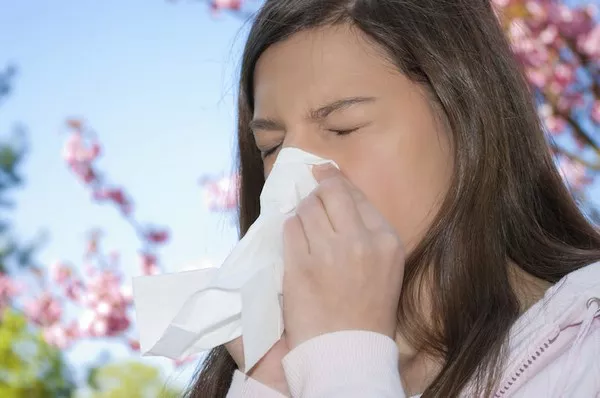For many allergy sufferers, the symptoms of allergies can become particularly bothersome at night, interfering with sleep and overall well-being. Understanding why allergies tend to worsen during nighttime hours can help individuals manage their symptoms more effectively. In this article, we will explore the reasons behind why allergies are often worse at night, examining various factors such as indoor allergens, circadian rhythms, and sleeping habits. By delving into this topic, we aim to provide valuable insights and strategies for individuals seeking relief from nighttime allergy symptoms.
1. Indoor Allergens
One of the key reasons allergies can be worse at night is the increased exposure to indoor allergens during this time. Indoor environments can harbor allergens such as dust mites, pet dander, mold spores, and pollen brought in from the outdoors. These allergens tend to accumulate in bedding, carpets, upholstery, and curtains. When we settle down for the night, we spend an extended period in close proximity to these allergens, increasing the likelihood of allergic reactions and symptoms. Moreover, poor ventilation and the lack of fresh air circulation can contribute to the concentration of allergens, further exacerbating nighttime allergies.
2. Circadian Rhythms and Immune Response
Our bodies have natural biological rhythms known as circadian rhythms, which regulate various physiological processes, including immune function. Research suggests that the immune response to allergens may vary throughout the day due to these rhythms. Studies have shown that certain immune cells responsible for allergic reactions, such as mast cells and eosinophils, exhibit heightened activity during the nighttime hours. This increased immune response can intensify allergic symptoms experienced at night, including nasal congestion, sneezing, and itching.
3. Sleep Disruption and Allergy Symptoms
Allergy symptoms can significantly disrupt sleep, leading to a vicious cycle of worsening allergies and poor quality of sleep. Nasal congestion, coughing, itching, and wheezing can make it difficult to fall asleep and stay asleep throughout the night. The resulting sleep deprivation can further compromise the immune system and make individuals more sensitive to allergens, leading to increased symptom severity. Additionally, sleep deprivation can affect overall well-being, cognitive function, and productivity during the day.
4. Strategies for Managing Nighttime Allergies
Fortunately, there are several strategies that can help individuals alleviate nighttime allergy symptoms and improve sleep quality:
a) Keep the bedroom allergen-free: Regularly clean and vacuum the bedroom to remove dust, pet dander, and other allergens. Consider using allergen-proof bedding covers, washing bedding frequently in hot water, and keeping pets out of the bedroom to minimize allergen exposure.
b) Control indoor humidity: Maintain optimal indoor humidity levels (around 40-50%) to prevent the growth of mold and dust mites. Use dehumidifiers or air conditioners, fix any leaks or water damage promptly, and ensure proper ventilation.
c) Use allergy-friendly bedding: Opt for hypoallergenic pillows and mattresses to reduce exposure to allergens. Wash bedding regularly in hot water to eliminate dust mites and allergens.
d) Consider allergy medications: Consult with a healthcare professional to determine if allergy medications, such as antihistamines or nasal sprays, are appropriate for managing nighttime symptoms. These medications can help alleviate nasal congestion, itching, and other allergy-related discomforts.
e) Improve sleep hygiene: Establish a regular sleep routine, create a comfortable sleep environment, and practice relaxation techniques to promote better sleep quality and minimize the impact of allergy symptoms on rest.
Conclusion
Nighttime allergies can significantly impact an individual’s sleep quality and overall well-being. By understanding the factors that contribute to worsened allergy symptoms at night, such as indoor allergens, circadian rhythms, and sleep disruption, individuals can implement strategies to manage and minimize nighttime allergies. Creating an allergen-free bedroom, controlling indoor humidity, using allergy-friendly bedding, considering allergy medications, and improving sleep hygiene are effective approaches for reducing nighttime allergy symptoms and achieving better sleep. As always, consult with a healthcare professional for personalized advice and guidance based on your specific allergy profile.


